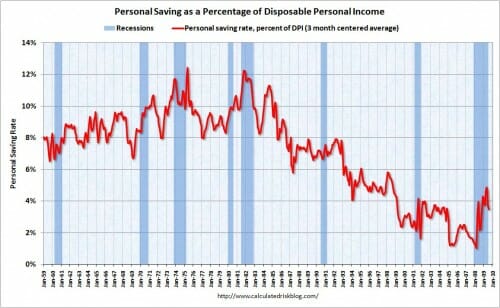What Fresh Hell Is This?
My new column is up this week at Forbes. This week it discusses the regulatory burden on small businesses. Here is an excerpt:
Typically taxation issues get a lot more attention than these regulatory issues in discussions of government drags on the economy. But these small regulations, licenses, and approvals consume management time, the most valuable commodity in small businesses that typically are driven by the energy and leadership of just one or two people. If getting a certain license is a tremendous hassle in California, large corporations have specialized staff they throw at the problem. When a company like ours gets that dreaded call that the County wants a soil sample from under the parking lot, odds are that the owner has to deal with it personally.
So the ultimate cost of many of these silly little regulations is that they each act as a friction that wears away a bit more available time from entrepreneurs and small business owners. The entrepreneur who has to spend two hundred hours of her personal time getting all the licenses in place for a new restaurant is unlikely to have the time to start a second location any time soon. Since small businesses typically drive most new employment growth in the United States, can it be a surprise that new hiring has slowed?
Incredibly, after the column was in the can, I experienced another perfect example of this phenomenon.
In the camping business, July 4 is the busiest day of the year. This year, on July 3, I got a call from one of my managers saying that the County health department had tested 20 ground squirrels in the area and found one with the plague. I know this sounds frighteningly medieval, but for those of you who live out west, you may know that some percentage of all the cute little western rodents, from prairie dogs to chipmunks, carry the plague. Its why its a bad idea for your kids and dogs to play with them.
Anyway, in the past, we have usually been required to post warnings in the area giving safety tips to campers to avoid these animals, what to do if one is bitten, etc. At the same time, we then begin a program of poisoning all the lairs we can find. It's about the only time any government body anywhere lets us kill anything, because only the hardest core PETA types will swoon over rubbing out a rodent carrying the black death.
But apparently, in the past when these mitigation approaches applied, the county health department was not in a budget crunch and in need of high-profile PR stories that would reinforce with taxpayers the need to fund their organization. This time the health department marched out and closed the campground on July 4 weekend, kicking out campers from all 70 sites. We spent the day dealing with angry customers, refunding money, and trying to find them new lodging on a weekend where most everything was booked up. Fortunately we have a large overflow area at a nearby campground and offered everyone a special rate over there.
It is hard to imagine that, given the whole year to test, they just suddenly happened to find a problem at one of the busiest sites in the LA area on the busiest weekend of the year, particularly since they simultaneously changed their mitigation approach from notification to closure. I have tried hard to find the original time stamp on the press release they sent out. I can't prove it, but it sure seemed like a lot of media had the story before we (operating the campground) had been informed of a thing. Incredibly, the health department was directing the campers to a nearby campground that was easily close enough to our campground to share the same rodent populations. But that campground had not had a positive plague test. Why? Because that campground has not been tested recently, at least according to the official who brought us the news. We're in very good hands.

